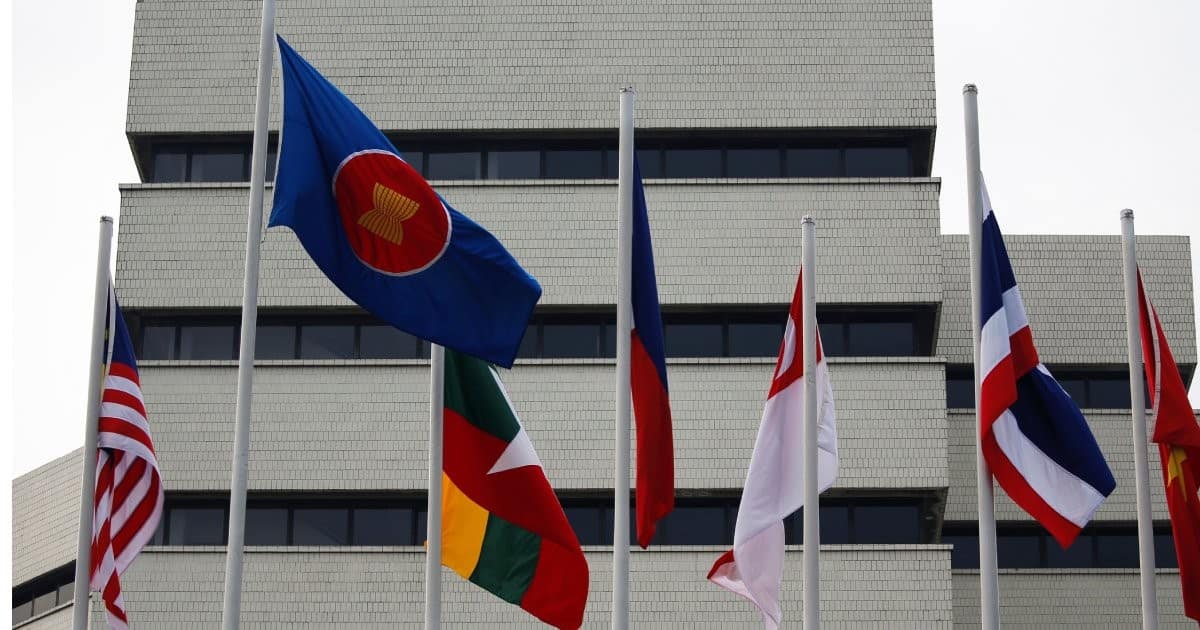The ASEAN bloc has made it clear that it prefers diplomacy over confrontation in trade disputes. As tensions rise over US over tariffs policies Southeast Asian nations are pushing for constructive talks rather than retaliatory measures. This approach highlights ASEANs commitment to maintaining stable trade relations while addressing concerns about rising costs and market access.
In this blog we will explore why ASEAN is choosing dialogue over retaliation how US over tariffs impact the region and what this means for future trade relations. BestPrimeNews
Why ASEAN Wants Talks on US Over Tariffs
The US over tariffs policies have affected several key industries in ASEAN countries including electronics textiles and agriculture. Higher tariffs make exports more expensive reducing competitiveness in the American market. Instead of imposing counter-tariffs ASEAN leaders are opting for negotiations to find a balanced solution.
This strategy aligns with ASEANs long-standing approach to trade diplomacy. The bloc values economic stability and knows that a trade war would harm both sides. By engaging in talks ASEAN hopes to persuade the US to reconsider certain tariffs or offer exemptions for critical sectors.
Key Industries Affected by US Over Tariffs
Several ASEAN economies rely heavily on exports to the US. Countries like Vietnam Thailand and Malaysia face significant challenges due to US over tariffs on goods such as:
- Electronics (semiconductors consumer devices)
- Textiles and Apparel (garments footwear)
- Agricultural Products (rubber seafood)
Higher tariffs disrupt supply chains and force businesses to absorb extra costs. Some companies may shift production to avoid tariffs but this is not always feasible. ASEANs push for dialogue aims to ease these pressures without escalating trade tensions.
ASEANs Diplomatic Approach to US Over Tariffs
Unlike other regions that have retaliated with their own tariffs ASEAN is taking a softer stance. The bloc believes that open communication can lead to better outcomes than a tit-for-tat trade war.
Key elements of ASEANs strategy include:
- Engaging in Bilateral Talks – Member states are discussing concerns directly with US trade representatives.
- Leveraging Regional Partnerships – ASEAN may use platforms like the Indo-Pacific Economic Framework (IPEF) to address tariff issues.
- Seeking Exemptions for Critical Sectors – Some industries could get relief if ASEAN successfully negotiates special terms.
This approach shows ASEANs preference for stability and long-term cooperation rather than short-term confrontations.
Potential Outcomes of ASEAN-US Tariff Talks
If discussions succeed ASEAN could secure:
- Reduced Tariffs on certain goods
- Extended Deadlines for compliance with new trade rules
- More Favorable Trade Agreements under existing frameworks
However if talks stall ASEAN may need to explore alternative markets or strengthen intra-regional trade to reduce dependence on the US.
Why ASEAN Avoids Retaliation Against US Over Tariffs
Retaliatory tariffs could trigger a broader trade conflict harming ASEAN economies. Many countries in the region depend on US investment and consumer demand. A trade war would risk jobs economic growth and foreign direct investment.
Instead ASEAN is betting on diplomacy to protect its interests while keeping trade relations intact. This measured response reflects the blocs pragmatic approach to global trade challenges.
Conclusion
ASEANs decision to seek dialogue rather than retaliation over US over tariffs demonstrates its commitment to peaceful trade resolutions. While the tariffs pose challenges the blocs diplomatic strategy offers a path forward without escalating tensions.
As discussions continue the world will be watching to see if the US and ASEAN can find common ground. One thing is clear ASEAN values cooperation over conflict and that could be the key to resolving this trade dispute.
By focusing on negotiations rather than retaliation ASEAN sets an example for how nations can handle trade disagreements constructively. The outcome of these talks will shape not just ASEAN-US relations but also the future of global trade dynamics. BestPrimeNews



